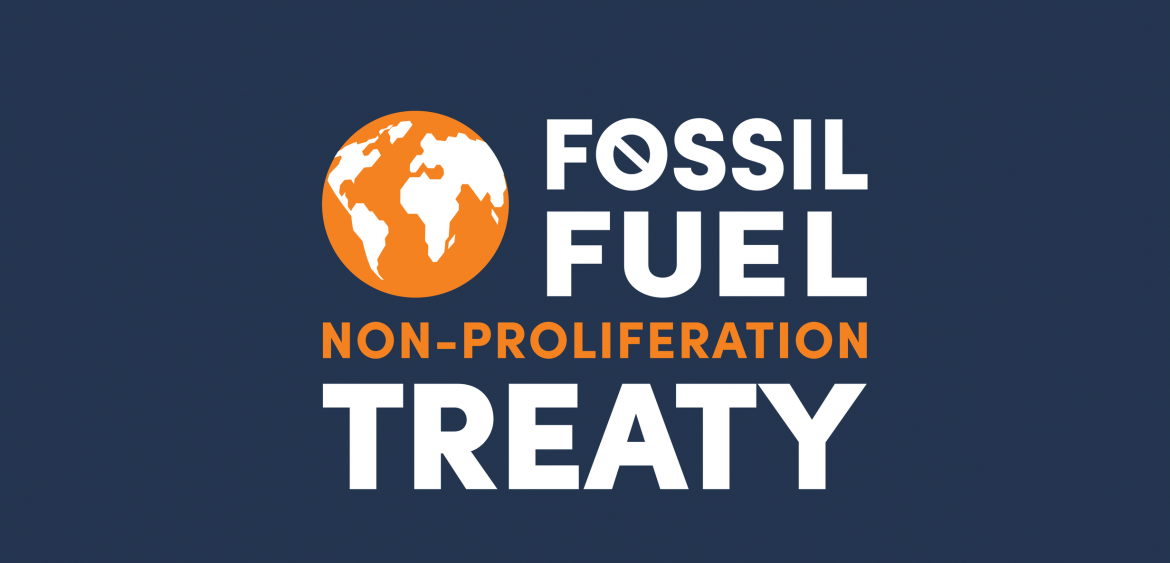Religious groups from Africa and across the globe on Wednesday called for a Fossil Fuel Non-Proliferation Treaty, a binding international agreement that would halt new fossil fuel development, require an equitable phase-out of coal, oil, and gas, and commit resources for a just transition to a sustainable future for impacted countries and workers.
Recall that the President of Vanuatu, Nikenike Vurobaravu, recently made his country the first nation-state to call for a Fossil Fuel Non-Proliferation Treaty during his speech at the recent UN General Assembly.
The Fossil Treaty Initiative began in 2017 when the Least Developed Countries (LDC) group at COP23 stressed the need for: “an increase in ambition by all countries to put us on track to limit the global temperature increase to 1.5 degrees Celsius by strengthening our national contributions, managing a phase-out of fossil fuels, promoting renewable energy and implementing the most ambitious climate action.”
Read also: Survey: Climate Change forcing 40% of people to reconsider having Children,
In a virtual event co-hosted by the Catholic University of Eastern Africa, the Supreme Council of Kenya Muslims, the Laudato Si Movement and GreenFaith, religious leaders and grassroots religious activists supported a legally binding treaty.
They asserted that it reflected a moral, spiritual and practical necessity, given the lack of progress in reducing fossil fuel production. They also called for people of diverse religions globally to support this call for governments and financial institutions by signing a multi-faith letter to be released prior to COP27.
In her reaction, Meryne Warah, GreenFaith’s Global Director of Organizing based in Nairobi, said that the main cause of the climate emergency is fossil fuels, adding that Africa and the world need a binding agreement that will stop new fossil fuel projects, phases out existing products and provide generous support for a transition to a clean energy future and universal access to clean, affordable energy.
Speakers during the virtual event included religious activists, Hilda Nakabuye from Uganda, who works with Fridays for Future in opposition to the East Africa Crude Oil Pipeline, and Frances Namoumou, based in Fiji, of the Pacific Council of Churches, which actively supports the call for a Fossil Fuel Non-Proliferation Treaty, spoke about the devastating impacts of fossil fuel development and climate change in their communities.
In his submission, Namoumou said that people are already losing their homes, jobs, and communities due to rising sea levels In the Pacific Islands.
In a keynote address, Rev. Dr. Joshtrom Kureethadam of the Vatican Dicastery for Integral Human Development reiterated the Vatican’s recent support for a Treaty. This is even as Sheikh Yussuf Nassur, Religious Leader of the Supreme Council of Kenya Muslims, noted that continued reliance on fossil fuels directly opposes Islam’s central teachings, known as Maqasid Shariah.
“Historically and presently, those hit first and worst by climate change in Africa and worldwide have a tiny carbon footprint. Why should they suffer while the world’s largest corporations and wealthy governments fail to act?” Nassur asked.
According to reports, the event served as a kick-off of a period of heightened intensity in public religious activism for climate justice as grassroots religious groups globally are already carrying out actions in France, East Africa, the US, Indonesia, Australia and elsewhere to protest new fossil fuel projects and to call on the world’s largest asset managers to end support for climate-destructive projects.
